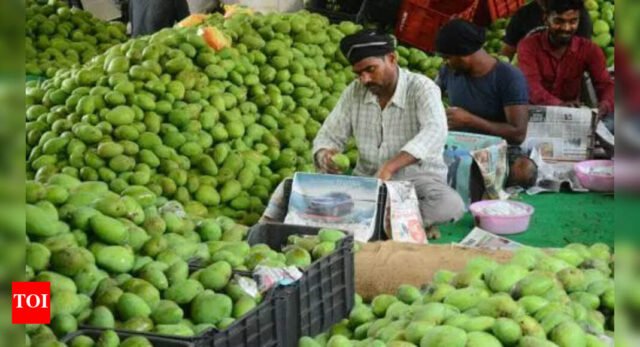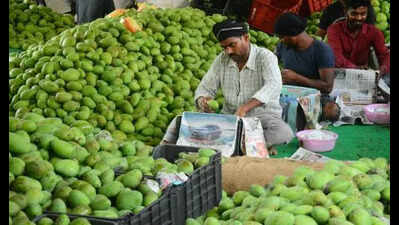Vijayawada: The early onset of the southwest monsoon, coupled with the pre-monsoon showers that lashed the region in the second half of May, turned out to be a major bane for mango plantations, resulting in significant damages to the crops in the orchards due to pest infestation. This has subsequently brought an early end to the mango export market at the Nunna mango market in NTR district.As a result, mango exports at the Nunna mango market, which is considered Asia’s largest mango market, ended on June 1, 15 days earlier its usual schedule.“On average, around 25,000 tonnes of mangoes are exported during the nearly three-month-long export season from the Nunna Mango market yard to different states. However, this season, mango exports stood at around 13,000 tonnes, which is 50% less than the usual exports that take place every year,” said Nunna mango market president Yuguturi Parama Reddy.It may be noted that the mango export season at the Nunna mango market generally begins in the last week of March and ends around June 15, depending on demand from outside markets and fruit supply from farmers.Parama Reddy said that usually 1,500 vehicle loads are exported each year from the mango market. However, this year, only about 800 vehicle loads were estimated to have transported mangoes from Nunna mango market.“Pest infestation and fruit damage due to pre-monsoon showers, which occurred when the fruit was nearly ready, have dented farmers’ hopes of getting a good price, leading to a price crash in the export market. As farmers did not receive remunerative prices for the fruit, many abandoned their harvests. One tonne of the Totapuri mango variety fetched just 5,000, compared to 20,000 in normal seasons — an amount that doesn’t even cover the transportation and plucking costs,” Parama Reddy explained.







